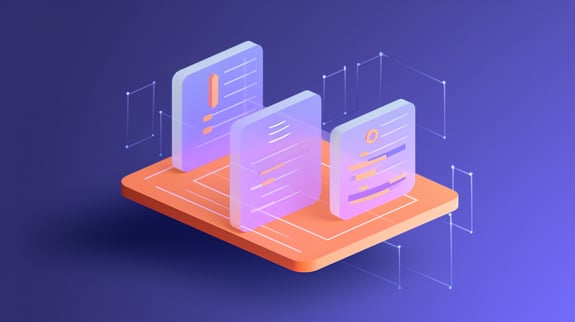Artificial intelligence (AI) holds great promise for transforming the legal industry, particularly in analytics. While experts rightly exercise caution, AI can safely enhance legal operations, driving smarter and more efficient processes. By adopting AI in this focused area, you prepare your practice for future technological advancements with confidence.
And there's one area in which AI can help quickly improve your legal operations: performance measurement.
Most legal workflow solutions offer non-AI analytics and performance tracking—how many contracts are "in flight," how long it takes a team or individual to complete their legal tasks, and how many contracts were turned in the last quarter—but artificial intelligence can help you track more strategic key performance indicators (KPIs).
For example, let's say your company has a strategic initiative to improve cash flow and, as part of that effort, sales and legal have been instructed to move the base terms of all deals closed from 90-day pay to 30-day pay. With AI contract analytics, you can benchmark the percentage of your active sales contracts that included 30-day at the beginning of the project, and what percentage of new deals signed since the project began have included 30-day pay.
If the percentage has gone up, you know that the effort is working.
Similarly, let's say your company has acquired another business that typically allowed a limitation of liability cap of $10 million, but your standard policy is a liability cap of only $3 million. Not only can AI quantify the number of acquired contracts with the oversized liability cap, but it can also track how quickly your team renegotiates those deals with amended terms.
AI-based KPIs can help you monitor the adoption or renegotiation of dozens of critical contract clauses, including governing jurisdiction, assignment rights, effective dates, and the contents of force majeure clauses (like, say, the ability to terminate an agreement in the event of a pandemic).
And these KPIs shouldn't be limited to sales deals; your vendor agreements can be analyzed and managed just as easily. You can even combine these analytics with data from your customer relationship management (CRM) system to determine which customer personas or supplier categories are performing better under your strategic initiatives.
Being cautious when applying AI to your legal operations is a wise move. After all, you don't want to file a legal brief with case citations that an AI hallucinated out of thin air. But by using AI to develop and track strategic legal KPIs, you're not only applying AI in a low risk, high reward scenario, you're also gaining valuable experience with the technology.
If you're ready to start leveraging artificial intelligence to improve your legal metrics, contact LinkSquares today.

Jay Garmon
Jay Garmon is a product development expert with over 20 years of experience across AI, legal tech, fintech, healthcare, and mobile apps. You can visit him on LinkedIn.Subscribe to the LinkSquares Blog
Stay up to date on best practices for GCs and legal teams, current events, legal tech, and more.


